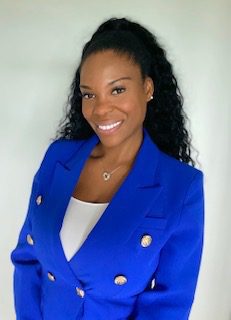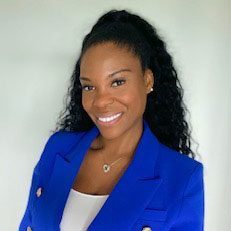Ombuds
At WHOI, we believe the greatest challenges and opportunities require a collective effort to really make a difference. To support our mission for a collaborative community WHOI has hired a consultant Ombudsperson.
You can contact Ombudsperson Alicia Booker at alicia.booker@whoi.edu.
What is an Ombudsperson?
An ombudsperson provides confidential, neutral, impartial, and independent conflict resolution assistance to WHOI employees (a "visitor") for WHOI related conflicts between two or more parties. The Ombudsperson discusses different options for conflict management, reduction, or resolution. We serve as an alternative, not a replacement of other WHOI resources for voicing concerns.
Your Information is Confidential
The Ombudsperson does not disclose and is not required to disclose any information provided in confidence, except to address imminent risk of serious harm. The Ombudsperson does not reveal the identity of the visitor without the visitors expressed consent.
Working Together
The Office of the Ombudsperson is dedicated to being a collaborative resource for WHOI and seeks to offer support to conflict management, resolution and reduction. Part of finding solutions is sharing ideas, trying new approaches, and evaluating what is effective. The visitor is active in choosing the path and providing feedback.
Preserving Time and Energy
Resolving conflict can be challenging and may take valuable time away from employees’ primary responsibilities at WHOI. The Ombudsperson helps manage and streamline the process of addressing concerns in many areas, such as:
-
Miscommunication
-
Indignities, slights, or insults
-
Interpersonal or group conflicts
-
Confusion regarding policy or procedural interpretation
-
Perceived harassment
-
Perceived ethical or moral dilemmas
-
Treatment or situations that are perceived as inconsistent with WHOI policies, mission, or core values
-
Concerns that may distract from fully participating in one’s role at WHOI
Ombudspersons Conflict Intervention Services
- Mediation - a voluntary and confidential facilitated process where the Ombudsperson guides the process. Mediation allows parties to share their perspective, clarify concerns, contextual information, and collaborate on forward facing features of an agreement. The participation of creating, implementing, and adhering to any agreement designed is the sole discretion of the parties involved.
- Facilitated Dialogue - A process based on the principles of effective human interaction where the ombudsperson leads as a neutral and helps the group explore different perspectives.
- Conflict Management Coaching - Conflict coaching is a one-on-one process to help people gain confidence to engage in communicating concerns.
- Dispute Systems Design - Is a process where we use a systemic approach to reduce the financial and emotional cost of conflict by creating clearly communicated processes or policies.
- Dispute Systems Evaluation - The ability to assess current systems and make effective and efficient suggestions for conflict management.
- Conflict Analysis - The initial stage of conflict resolution or reduction to explore the core of the conflicts or concerns.
- Strategic Negotiation or Negotiation Coaching - The Ombudsperson takes the integrative negotiation approach to help explore a win-win solution. We can provide tips and techniques to help visitors prepare for related negotiations.
- Confidential Investigations or Consultations - The Ombudsperson has access to inquire about policies, processes and procedures at will without providing the reason or purpose of the inquiry. The Ombudsperson does not disclose and is not required to disclose any information provided in confidence, except to address imminent risk of serious harm. Records pertaining to complaints, inquiry or investigation are confidential and not subject to disclosure outside the ombudsperson's office. The Ombudsperson does NOT reveal the identity of the visitor without the visitors expressed consent.
- Stake Holder Assessment - The process of assessing risk, concerns or interest of relevant stake holders regarding the conflict that is emerging.
- Consensus Building - A decision making process which the members of the group develop and agree to support a decision in the best interest of the whole group or common goal.
- Executive Coaching - The process by which the Ombudsperson works with a leader of an intact group to focus on their mental agility and comfort level with managing conflict and complex problems.
- Reviewing Correspondence - Visitors may ask the Ombudsperson to review written correspondences for tone, clarity of concerns, conciseness, and language that elicits cooperation.
- Workshop & Trainings - The Ombudsperson welcomes the opportunity to present on topics related to interpersonal communication, conflict management, conflict resolution, or conflict reduction.
FAQ About the Ombudsperson Office
About the Ombudsperson

Alicia Booker, Ph.D.
Alicia earned her doctorate from Nova Southeastern University's Conflict Analysis and Resolution program. Her dissertation focused on conflict analysis in corporate and academic settings. Her dissertation research project was on a competency model for organizational ombuds in higher education. She has a passion for teaching people how to protect their peace, communicate their concerns and leverage their personal power with confidence.
She has more than 15 years of experience in public speaking, executive coaching, conflict management, conflict resolution, and conflict reduction training in corporate and academic settings.
Alicia has received graduate certificates in executive coaching, conflict coaching, mediation, qualitative research, and advanced training on workplace collaboration. In addition to presenting, Alicia's roots in investigative journalism and private investigation have equipped her with a critical interview and question-asking skills that are key to collaboration.
She has created and designed training materials for large and small-scale groups. Alicia is committed to helping others with their professional development path and to improve their conflict management skills.
Alicia earned a Bachelor of Arts in Journalism, and a Master of Arts in Dispute Resolution from Southern Methodist University. She was nominated and selected to represent the Simmons Graduate School for the TEDxSMU Young Fellows program. In 2012, she emceed the first TEDxSMU talk on campus for students, faculty, and staff. She serves on the Southern Methodist University Alumni Board and is the current President of the International Ombuds Association.

